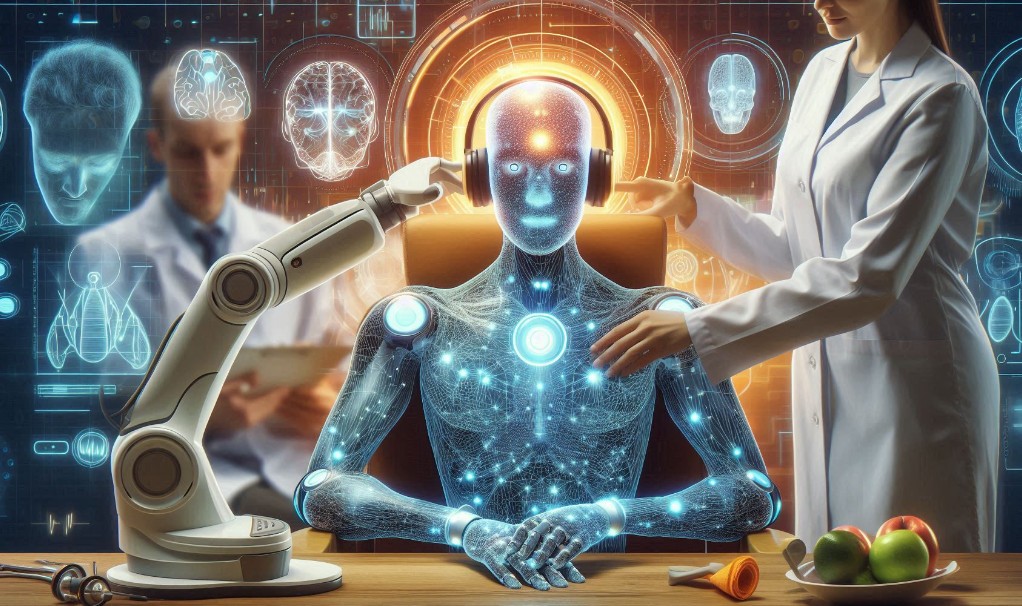In recent years, there has been a significant advancement in the field of Artificial Intelligence (AI) and Augmented Reality (AR). These technologies have become increasingly popular and have the potential to enhance virtual experiences in various fields such as gaming, education, healthcare, and...
The Role of AI in Therapy and Rehabilitation Innovations and the Future of Healthcare

Advancements in machine learning have led to groundbreaking changes in medical fields, particularly in patient treatment processes. Emerging technologies are now shaping how individuals recover from injuries, manage conditions, and receive ongoing support. With these innovations, healthcare providers are able to offer more personalized, efficient, and effective services to those in need.
Artificial intelligence plays a significant part in improving clinical outcomes by automating complex tasks, predicting health trends, and tailoring interventions for patients. These developments are making a profound difference in the quality of care people receive, enhancing not only physical recovery but also emotional well-being.
As AI continues to evolve, it promises to redefine traditional models of care, making treatments more accessible, timely, and targeted. The growing presence of such technologies opens up new possibilities for patient management, offering hope for faster, more successful recovery processes across various medical conditions.
AI Transforming Therapy Practices
Technological breakthroughs are reshaping how medical professionals approach patient recovery. Intelligent systems now assist clinicians in delivering tailored solutions, enhancing patient engagement, and improving treatment outcomes. This shift towards smarter care aims to maximize efficiency while providing more individualized attention to those seeking support.
Personalized Treatment Plans
AI enables the creation of highly customized recovery strategies based on real-time patient data. By analyzing medical histories, activity levels, and progress, these systems recommend adjustments to therapies, ensuring each individual receives the most effective interventions. This not only improves patient satisfaction but also accelerates recovery timelines.
Enhancing Progress Monitoring
AI-powered tools are equipped to track patient improvements more accurately, offering detailed insights into physical and cognitive recovery. These systems can detect subtle changes that may go unnoticed by human observation, allowing for timely adjustments in care. The continuous monitoring leads to more precise interventions, reducing risks and enhancing results over time.
Revolutionizing Rehabilitation with Technology
Recent advancements in smart technologies are transforming how patients recover from injuries or manage long-term conditions. By incorporating automation, artificial intelligence, and remote monitoring tools, healthcare providers can offer more efficient, targeted treatments. These tools help reduce treatment times, minimize human error, and ensure that recovery processes are both effective and personalized.
AI-Powered Tools Enhancing Recovery
Artificial intelligence plays a significant role in modernizing recovery methods by supporting decision-making and optimizing care. These intelligent systems can:
- Analyze large volumes of patient data to provide insights on recovery patterns.
- Identify the most suitable therapeutic techniques based on individual progress.
- Monitor patients remotely, ensuring timely adjustments and reducing clinic visits.

Remote Monitoring and Support
Technology also enables continuous monitoring of patients outside traditional medical settings. This approach offers several key benefits:
- Real-time tracking of patient progress.
- Immediate adjustments to recovery plans based on collected data.
- Increased patient engagement through feedback and communication.
These technological advances ensure a more holistic approach to patient care, providing better outcomes and making recovery more accessible for individuals with mobility or location challenges.
The Future Impact of AI on Healthcare
As technology continues to evolve, its influence on the medical field will only increase, leading to more efficient, accurate, and accessible patient care. With advancements in artificial intelligence, healthcare professionals can expect smarter systems that automate complex tasks, predict patient needs, and offer more personalized treatments. These changes will drive a shift in how medical services are provided and improve overall patient outcomes.
Automation of Routine Tasks
AI systems are set to automate many routine aspects of medical care, including diagnostics, record-keeping, and administrative tasks. This will allow healthcare providers to focus on critical decision-making and patient interaction, improving efficiency and reducing human error. Key benefits include:
- Faster diagnosis through AI-powered tools analyzing medical data.
- Less time spent on administrative duties, allowing for more patient interaction.
- Reduced risk of errors in routine procedures and treatment plans.
Personalized Medicine
With AI's ability to process vast amounts of data, healthcare providers will be able to offer more tailored treatments. This will allow for a more individualized approach to managing medical conditions, ensuring that interventions are suited to each patient's specific needs. Advantages include:
- Better prediction of treatment responses based on genetic and lifestyle data.
- More precise drug prescriptions, reducing side effects and improving outcomes.
- Faster adjustments to treatment plans based on real-time patient data.
AI's growing influence will not only improve the precision of care but also make healthcare more adaptive to the changing needs of each patient. This will lead to a more sustainable and accessible system for everyone involved.



